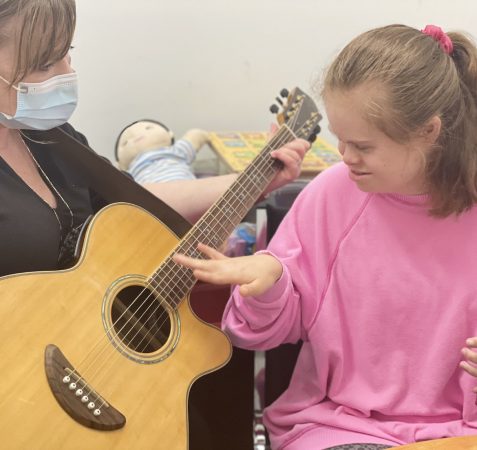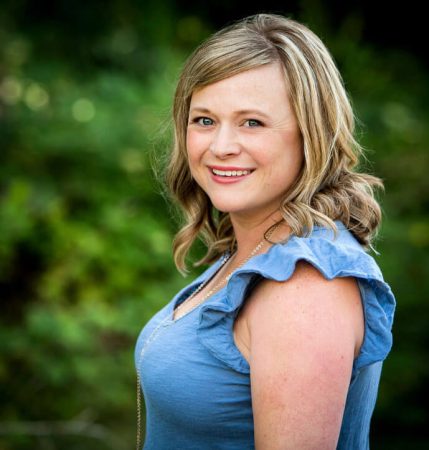From Music Therapist Michaela at PASS:
“Erin is a social, fun-loving 24 year old woman with Down Syndrome and Autism Spectrum Disorder (ASD). She enjoys music, dancing, swimming, skiing, yoga and shopping. Erin loves spending time in the community, outings that involve sensory stimulation (eg. rollar coasters, water slides), and everyday tasks that involve spending time with people she knows and meeting new people. Erin is non-verbal and communicates using a combination of adaptive communication applications on her iPad and sign language (ASL). Erin is most familiar with Proloquo2Go and ALM board. Erin lives with her long term caregiver in a home share arrangement.
Erin is highly motivated by music. This year, she has been able to participate in one to one music therapy, in addition to joining in for parts of the larger group sessions. She has been successful in both online and in person music therapy sessions. For Erin, music has been a wonderful medium to encourage functional communication, appropriate social interactions with her peers and even help with the ability to adapt/cope with changes. She has many preferred songs that she loves to request. She does this with the help of her iPad communication program or by presenting her with two different choices represented by the therapists or instructors hands. When singing familiar songs, Erin loves to sing along when the therapist leaves space for her to do so in a song. For instance, when singing “Bad Blood” by Taylor Swift, Erin loves to complete the lyrics. The therapist sings “Now we got” and Erin completes the line “Bad Blood” with a vocal approximation. In group settings, Erin has been able to patiently wait her turn for a song choice, practice greeting her peers and successfully remain part of a larger group for the majority of the session. Erin loves to sing along with her friends during our group therapy sessions. Music Therapy is one of the only group programs at PASS that Erin has been able to attend consistently and successfully on an ongoing basis. Music therapy groups at PASS have provided Erin with a lovely opportunity for her to be able to really be part of a group and interact with her peers.
Erin has been working so hard on her goals over the past few months. In Music Therapy moving forward, she will continue to work on further developing her functional communication and social skills. We will continue to use music as a motivation for her to increase her independence when making requests using her iPad, vocal approximations and her sign language. We are also continuing towards having her successfully remain part of the larger group for a full session, allowing her to have more opportunities for appropriate interactions with her peers during her day. We are all excited to see what this next year brings for Erin.”


